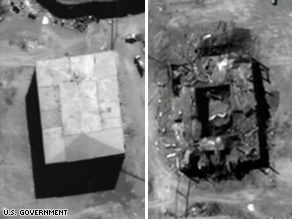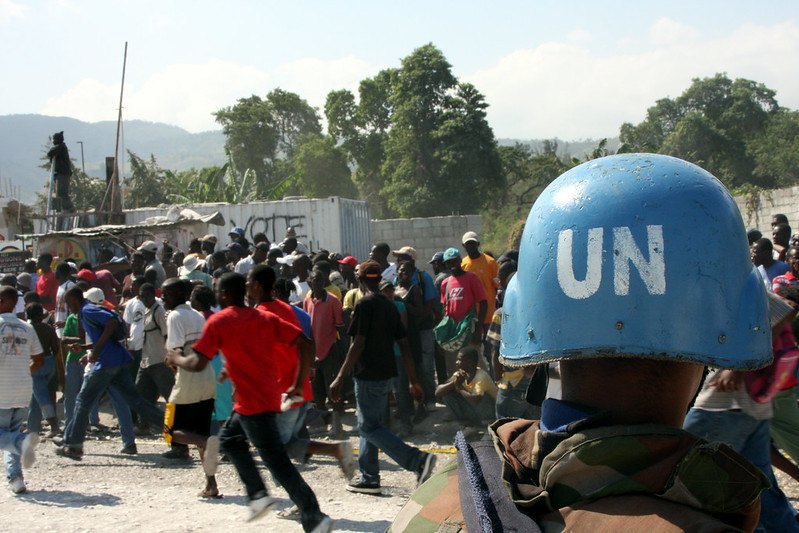The Al-Kibar Strike: What a Difference 26 Years Make
Israel has experienced, quite literally, a blast from the past. For the first time, Israel officially acknowledged operation “Outside the Box”—the September 2007 strike that destroyed the Al-Kibar nuclear reactor, located in the Dier Al-Zour region in Syria. The construction of the reactor, in cooperation with North Korea, was approaching completion at the time of the strike. 

Israel has experienced, quite literally, a blast from the past. For the first time, Israel officially acknowledged operation “Outside the Box”—the September 2007 strike that destroyed the Al-Kibar nuclear reactor, located in the Dier Al-Zour region in Syria. The construction of the reactor, in cooperation with North Korea, was approaching completion at the time of the strike. 
Two weeks ago, the Israeli military censor lifted the order that precluded Israeli media from publishing details about Israel’s role in the strike without attribution to foreign sources. What followed was a slew of reports and interviews with the government officials and military pilots involved, providing details about the discovery of the reactor, the planning of the operation, the bureaucratic and political infighting, the role of the Bush administration, the execution of the strike, and the anxious wait for the Syrian response. (The U.S. government and the international press made much of this information public a long time ago.)
As a number of commentators have observed, the renewed interest in the Al-Kibar operation coincides with rising tensions over North Korea’s nuclear program and the Iran nuclear deal. North Korea’s major role in the clandestine construction of the Al-Kibar reactor—the same type of reactor as North Korea’s Yongbyon facility—is a stark reminder of the proliferation risk that the country poses. Those tensions have prompted discussion of the legality under international law of the resort to preemptive self-defense against nuclear threats. (See, for example, analysis from Michael Schmitt and Ryan Goodman, Matthew Waxman and Monica Hakimi on the legality of a so-called “bloody nose strike” against North Korea. A note on terminology: preemptive self-defense and preventive self-defense are often used interchangeably in these debates, although they are not identical concepts.)
The contours of the debate around preemptive self-defense against nuclear threats, which is tied to the debate about broadening the scope of the right to self-defense to address modern terrorism, should be familiar to Lawfare readers. On one side of the spectrum, there are those who argue that the disastrous potential of nuclear weapons necessitates the relaxation of the traditional requirements for the exercise of the right to self-defense under Article 51 of the U.N. Charter—namely, an imminent armed attack—to allow for necessary and proportional defensive action well before a nuclear threat materializes. Proponents of this approach, primarily associated with Israel and the Bush administration’s preemption doctrine, have argued that waiting for a nuclear threat to materialize would render use of force in self-defense impossible because of the risks associated with attacking an active nuclear facility. Others maintain that this approach stretches the right to self-defense beyond recognition; they emphasize the danger of allowing states to unilaterally use force against other states based on speculation that they are seeking a nuclear weapons capability. The latter approach is the dominant one among international lawyers. (For an overview of the range of views on this topic, see Christine Gray’s comprehensive treatment of the subject, as well as Marty Lederman’s discussion of imminence and preemption in the counter-terrorism context.)
The Al-Kibar operation hardly settles this debate, but it is a data point on state practice on preemptive self-defense against nuclear threats. This was true long before Israel acknowledged the strike, but the acknowledgment and related statements shed new light on what exactly this data point stands for. Two elements are worth highlighting: the meaning of Israel’s decade-long silence, and what we might learn from comparing the international reaction to the Al Kibar operation with the reaction to “Operation Opera,” the 1981 strike in which Israel destroyed the Osirak nuclear reactor in Iraq.
The Meaning of Israel’s Silence
For an act to have legal significance under customary international law, it must be accompanied with opinio juris. Article 38 of the Statute of the International Court of Justice requires “evidence of a general practice accepted as law” for the identification of customary norms. The new revelations about the Al-Kibar strike challenge common perceptions about the reasons for Israel’s silence about the operation and could affect the analysis of its opinio juris regarding the strike.
Prior to the new revelations, Israel’s silence and failure to offer a legal justification for the strike inspired speculation that it may have believed the strike to be unlawful under international law. For instance, Christine Gray opined that Israel’s silence “may be taken as an indication that Israel did not regard [the preemption doctrine] as a plausible legal justification …” But the new and detailed statements from Israel’s leadership at the time of the operation make it clear that international law was hardly the main motivation behind Israel’s silence. Rather, Israel sought to avoid escalation into a military confrontation with Syria by opting for a small-footprint, targeted, unacknowledged strike that would allow Syrian President Bashar al-Assad to deny the existence of a nuclear program in Syria and refrain from a military response.
It remains true, however, that we do not know what Israel’s legal position actually was. Israel has yet to provide a public legal justification for the Al-Kibar operation under jus ad bellum. The newly released interviews with members of Israel’s leadership at the time, including then-prime minister Ehud Olmert, did not explicitly address the legal aspects of the decision to carry out the strike. The only reference I found in the reports about the strike to the role of lawyers in vetting the operation was a brief mention of then-attorney general Meni Mazuz’s involvement in drafting the government decision that authorized the operation.
The absence of an explicit public legal justification for the Al-Kibar strike (like the one Israel offered for the strike on the Osirak reactor in Iraq, discussed below) makes it difficult to argue that the operation supports an emerging right to preemptive self-defense against nuclear threats under international law. It remains unclear whether the strike was complemented by opinio juris, an essential element for the development of customary international law. Israel would do well to supplement its public acknowledgment of the Al-Kibar operation with the disclosure of its position on the legality of the operation under international law, if such a position exists.
From “Opera” to “Outside the Box”
Operation Outside the Box was not the first time Israel resorted to military force to destroy the nuclear program of an adversary. In a 1981 operation known as “Operation Opera,” the Israeli air force destroyed Iraq’s Osirak nuclear facility, located near Baghdad. The construction of this declared nuclear reactor (with French assistance) was approaching completion at the time of the operation. “Opera” implemented what became known as the “Begin Doctrine,” according to which Israel would not allow an adversary to pursue nuclear weapons and would resort to force if necessary. The Al-Kibar strike is another instance of the implementation of that same doctrine.
However, there are significant differences between the two strikes that weigh on their analysis under international law. Unlike Israel’s silence on the legal justification for the Al-Kibar strike, Israel acknowledged the Osirak operation immediately and submitted a letter to the U.N. Security Council defending the operation. First, Israel argued that the Iraqi reactor posed an existential threat:
The Government feels dutybound to explain to enlightened public opinion why it took this decision.
For a long time we have been watching with growing concern the construction of the atomic reactor, "Ossirac". From sources whose reliability is beyond any doubt we learnt that this reactor, despite its camouflage, is designed to produce atomic bombs. The target for such bombs would be Israel. This was clearly announced by the ruler of Iraq … The atomic bombs which that reactor was capable of producing … would be of the Hiroshima size. Thus a mortal danger to the people of Israel progressively arose.
Second, the letter stated that the timing of the attack was based on information that the reactor would become “hot” in short order—that is, that the reactor would be activated—making a strike impossible due to the risk of radioactive fallout that would result in massive harm to civilians in the area of the reactor and beyond. Third, according to the letter, the attack was carried out on a Sunday, when foreign experts were not on site, and indeed no foreign experts had been harmed during the strike. The letter concludes with the Begin Doctrine:
Under no circumstances will we allow an enemy to develop weapons of mass destruction against our people.
We shall defend the citizens of Israel in time, and with all the means at our disposal.
The letter conveys Israel’s position that “Operation Opera” was an exercise of its right to self-defense in the face of an existential threat; that it was necessary in light of Osirak’s impending activation; and that it was proportional considering its targeted nature and the measures taken to minimize casualties. While the letter did not explicitly invoke Article 51 of the U.N. Charter, the Israeli representative made it clear during Security Council debates that “Israel had exercised its right of self-defence as understood in international law and as preserved in Article 51 of the Charter.”
These arguments did not gain much traction with the international community at the time. The operation was widely criticized, including in the United States. At the Security Council, the U.S. representative agreed that Israel ought to be condemned for the strike. The then-Director General of the International Atomic Energy Agency (IAEA) told the Security Council that “[i]n view of the Israeli action and the rationale put forward for that drastic step … the raid on Osirak constituted an attack on the safeguards system of IAEA.” Subsequently, the Security Council unanimously adopted Resolution 487, strongly condemning Israel over the operation. The resolution recognized Iraq’s right to pursue nuclear technology for civilian purposes, called on Israel to place its own nuclear facilities under IAEA safeguards, and determined that Iraq was entitled to “appropriate redress.” However, the resolution stopped short of imposing sanctions against Israel under Chapter VII of the U.N. Charter, an outcome that the Iraqi foreign minister attributed to U.S. protection of Israel.
Fast-forward 26 years: The Al-Kibar operation did not draw nearly as much international criticism compared to Operation Opera. According to the accounts that have emerged since last week, the U.S. turned a blind eye and implicitly encouraged the operation. There was no Security Council debate or resolution after the strike in 2007. Few states condemned the operation. Even the Arab world largely remained silent. (Leonard Spector and Avner Cohen offer a detailed overview of the reactions to the strike in 2008.) Israel’s acknowledgment of the strike has not inspired further international condemnation, and international criticism of the strike remains muted.
The relative international silence on the Al-Kibar strike might be motivated by political expediency. The ongoing conflict in Syria and the acts committed by the Assad regime against civilians have made insisting on its sovereign rights unattractive for many states, with the notable exception of Russia. What’s more, if Israel had not destroyed the Al-Kibar facility when it did, the reactor might have fallen into the hands of the Islamic State, which at one point controlled the area where it was located.
Alternatively, the silence could be because Syria clearly broke the rules by clandestinely pursuing a nuclear weapons capability in cooperation with notorious proliferator North Korea. The Treaty on the Non Proliferation of Nuclear Weapons (NPT), which Syria signed and ratified, prohibits non-nuclear weapons states from acquiring or manufacturing nuclear weapons. Moreover, Syria failed to declare Al-Kibar to the IAEA, which concluded that “it was very likely that the building destroyed at the Dair Alzour site [that is, the Al Kibar facility] was a nuclear reactor which should have been declared to the Agency,” contrary to Syria’s assertion that the facility was an ordinary military installation.
Nevertheless, the difference between the international response to Operation Opera and the response to Operation Outside the Box 26 years later—and even after Israel came forward about the attack—might have legal significance for the debate on preemptive self-defense against nuclear threats.
It would be unwise to jump to the conclusion that the many states that did not protest the Al-Kibar strike instead acquiesced to it, thus indicating their support for a right to exercise preemptive self-defense to eliminate nuclear threats. Still, one could argue that the clandestine and military nature of the Al-Kibar reactor, its proximity to Israel, and the hostility between Israel and Syria rendered Israel’s “last opportunity to stop an existential threat” argument more plausible now than when it invoked it to justify the destruction of Osirak—a distant, declared, reactor built with French assistance. Under this reasoning, the relatively muted international response could suggest that members of the international community might be willing to entertain preemptive self-defense under such extreme circumstances.
In sum, the question of whether international law now recognizes a right to preemptive self-defense against nuclear threats remains highly contested. But the evolution of the international position from “Opera” to “Outside the Box,” even after Israel acknowledged its role in the latter, is telling. Both scholars and politicians will likely take this evolution into account in discerning state practice on this question going forward.



.jpg?sfvrsn=104df884_5)

